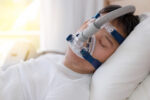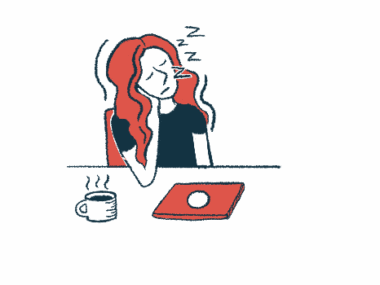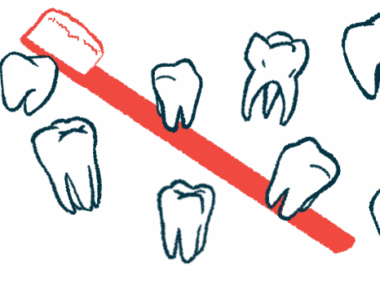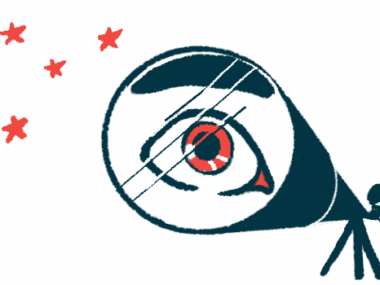Mix of Chinese Herbal Medicines May Help Improve Patients’ Sleep
Written by |

A mix of four traditional Chinese herbal medicines may help improve sleep and reduce the levels of certain antibodies in patients with Sjögren’s disease, a Taiwanese study suggests.
However, no differences were seen in disease severity scores between patients treated with the Chinese medicine mixture compared to those on a placebo.
The study, “Traditional Chinese Medicine in Patients With Primary Sjogren’s Syndrome: A Randomized, Double-Blind, Placebo-Controlled Clinical Trial,” was published in the journal Frontiers in Medicine.
Primary Sjögren’s syndrome is an autoimmune disorder characterized by misguided immune response against the glands that produce tears and saliva. Currently, no effective therapies targeting the underlying cause are available, with patients relying instead on therapies that provide symptomatic relief.
In Taiwan, Sjogren’s syndrome affects approximately 0.8% of the population (mainly women), and over 90% of patients with primary Sjögren’s syndrome are reportedly treated with traditional Chinese medicines. However, the effectiveness of these treatments remains unknown.
To address this question, a team led by researchers at the Chung Shan Medical University Hospital, in Taiwan, conducted a clinical trial to assess the efficacy and safety of a mixture of four frequently prescribed traditional Chinese herbal medicines — called Gan-Lu-Yin (GLY), Jia-Wei-Xiao-Yao-San (JWXYS), Suan-Zao-Ren-Tang (SZRT), and Ye-Jiao-Teng (YJT) — selected from the National Health Insurance system in Taiwan.
In total, 42 patients with Sjogren’s syndrome (ages 20 to 80 years) were randomly assigned to either a placebo (14 patients) or the traditional Chinese medicines group (28 patients). The placebo had the same appearance and flavor of the Chinese medicines but only one-tenth the dosage.
Those in the Chinese medicines group received six grams of GLY granules after breakfast, and six grams of JWXYS combined with one gram each of SZRT and YJT following dinner, every day for 12 weeks. Patients were evaluated every four weeks.
No other traditional Chinese medicines were allowed during the study. An exception was made for patients being treated with Western medicine for more than two weeks before the trial, with patients required to maintain the treatment.
The study’s primary goal was a change in EULAR Sjögren’s syndrome patient reported index (ESSPRI), which evaluates fatigue, pain, and dryness. The ESSPRI scores range from zero to 10, with higher scores indicating more severe symptoms.
Secondary goals included changes in disease activity (assessed as changes in EULAR Sjögren’s syndrome disease activity index, or ESSDAI), sleep (assessed by the Pittsburgh Sleep Quality Index, or PSQI), fatigue (evaluated with the Multidimensional Fatigue Inventory), as well as overall health status, assessed by a physician global assessment (PGA).
In total, 21 patients in the Chinese medicines group and nine in the placebo group completed the trial.
At the start of the trial, the general health status of patients in the Chinese medicines group was worse than patients in the placebo group. Also, they had poorer sleep quality, as shown by higher PSQI scores — mean average of 11.25 vs. 10.57 in the placebo group.
At the end of the 12 weeks, the two groups showed no differences in the majority of lab parameters evaluated. However, the levels of IgG — a type of antibody often increased in patients with Sjögren’s disease as a reflection of an overactive immune system — decreased significantly in the traditional Chinese medicines group.
The ESSPRI scores were reduced — which indicates easing of symptoms — in both groups, but the decrease was more pronounced in the placebo group (decrease of 0.91) compared to the treatment group (decrease of 0.62). The researchers noted, however, that “the ESSPRI scores of patients in the treatment group were higher than those of patients in the control group” at the start of the trial.
Despite a significant reduction in ESSDAI disease activity scores after 12 weeks in patients treated with traditional Chinese medicines, the placebo group also experienced a reduction in ESSDAI scores and no significant difference was seen between the two groups.
In turn, the PGA scores, another measure of disease activity, were significantly reduced in the Chinese medicines group compared with the placebo group.
Patients treated with the mixture of traditional Chinese medicines experienced an improvement in their sleep duration compared with the placebo group, as shown by 30 minutes more sleep daily. Their blood pressure was also improved.
The single severe adverse event reported was due to a stretched and swollen kidney, but no link to the herbal Chinese medicines was found.
Overall, the findings suggested that while the mixture of traditional Chinese medicines had no effect in easing disease severity of Sjögren’s syndrome patients, this combo “could prolong patient sleep duration,” the researchers wrote.
“We also discovered that this formula could decrease the serum [blood] level of IgG and blood pressure at the end of the study,” they concluded.







